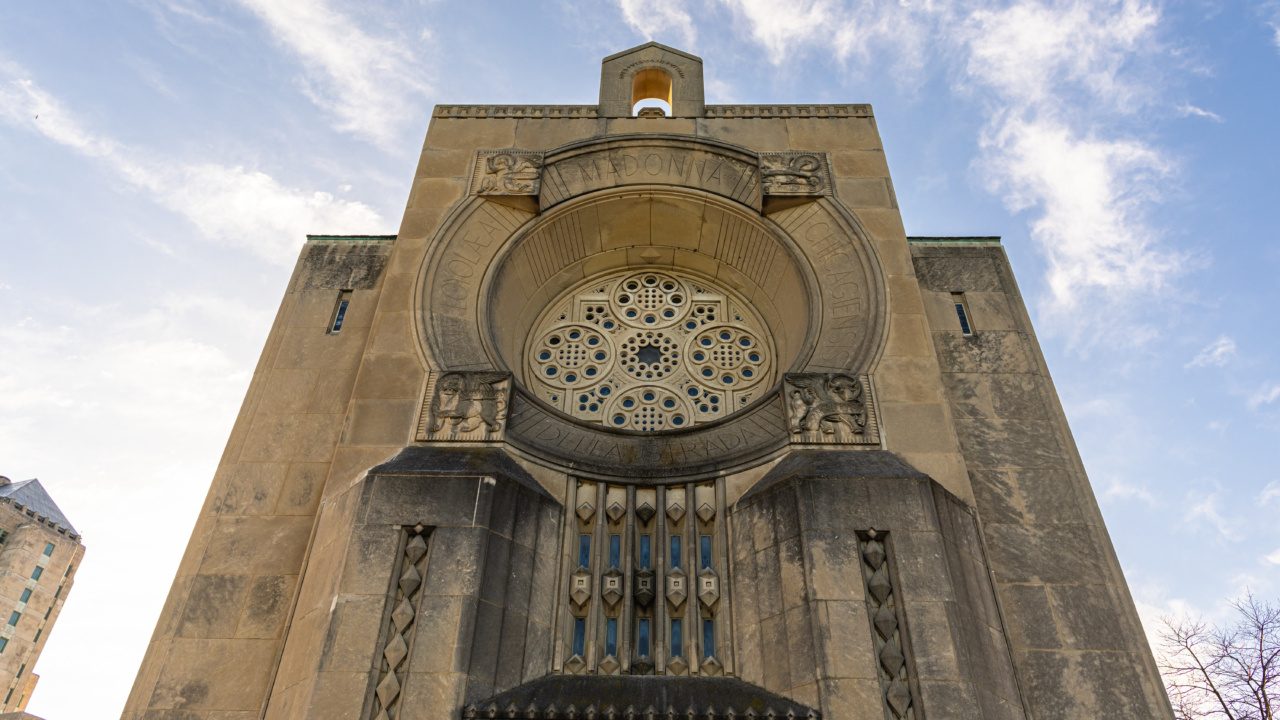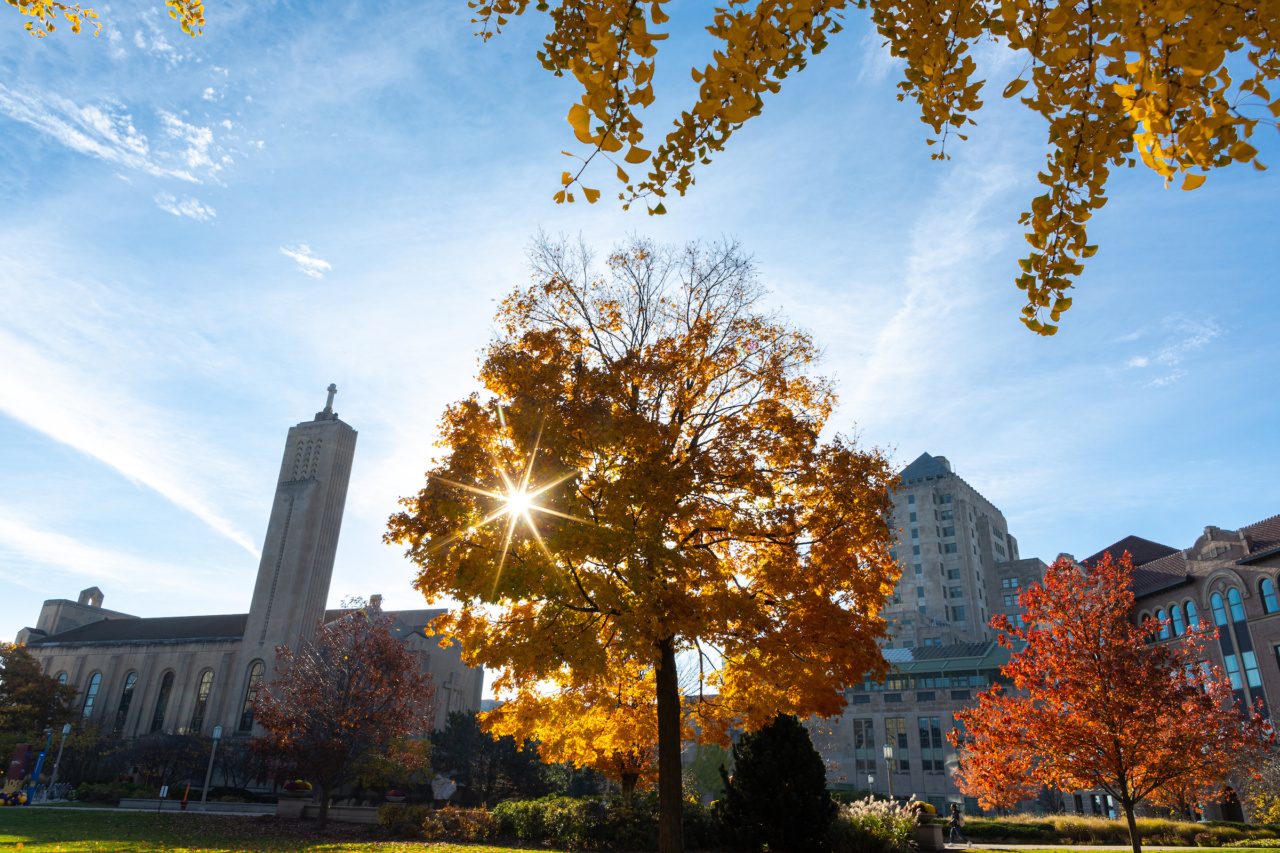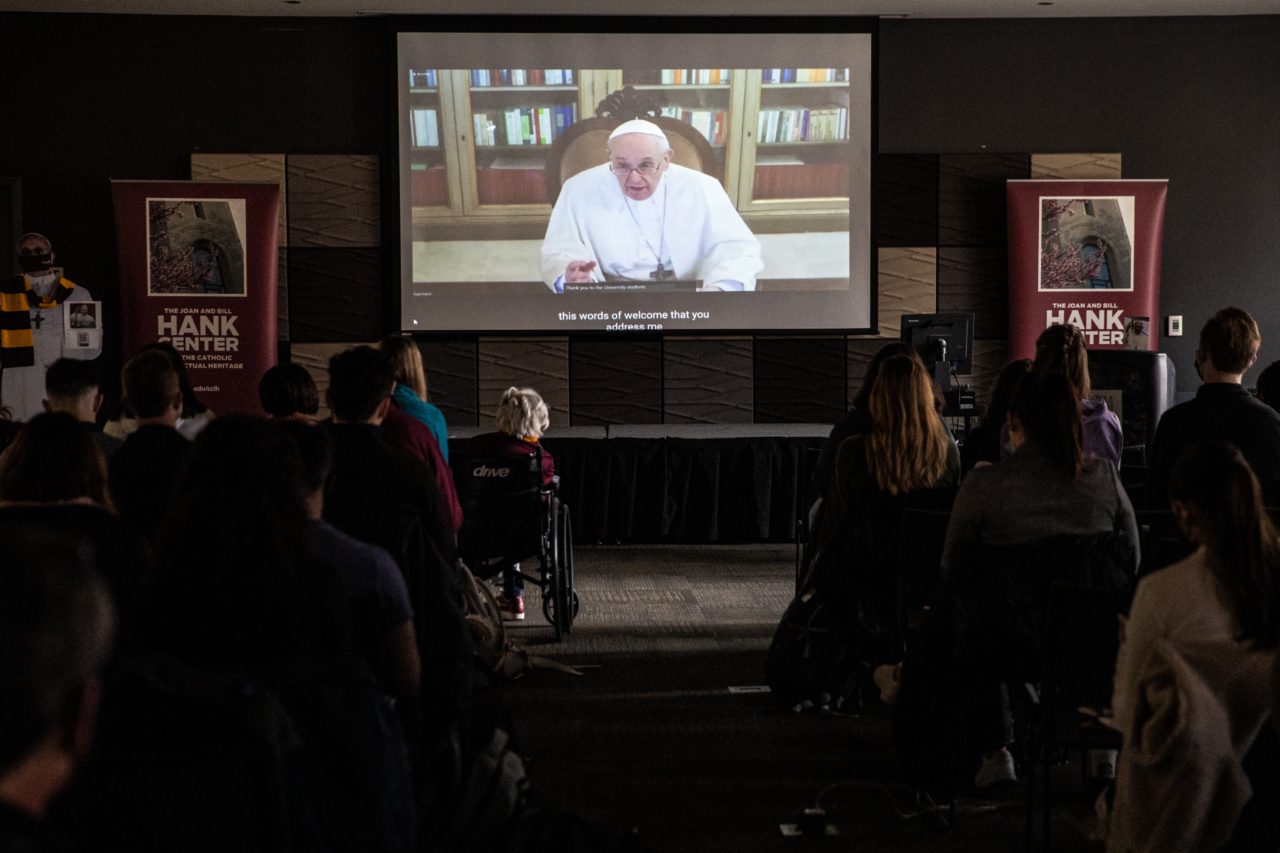Life-changing moment
The presentation of the prestigious Opus Prize will help further a mission of transformative education on the Pine Ridge Indian Reservation
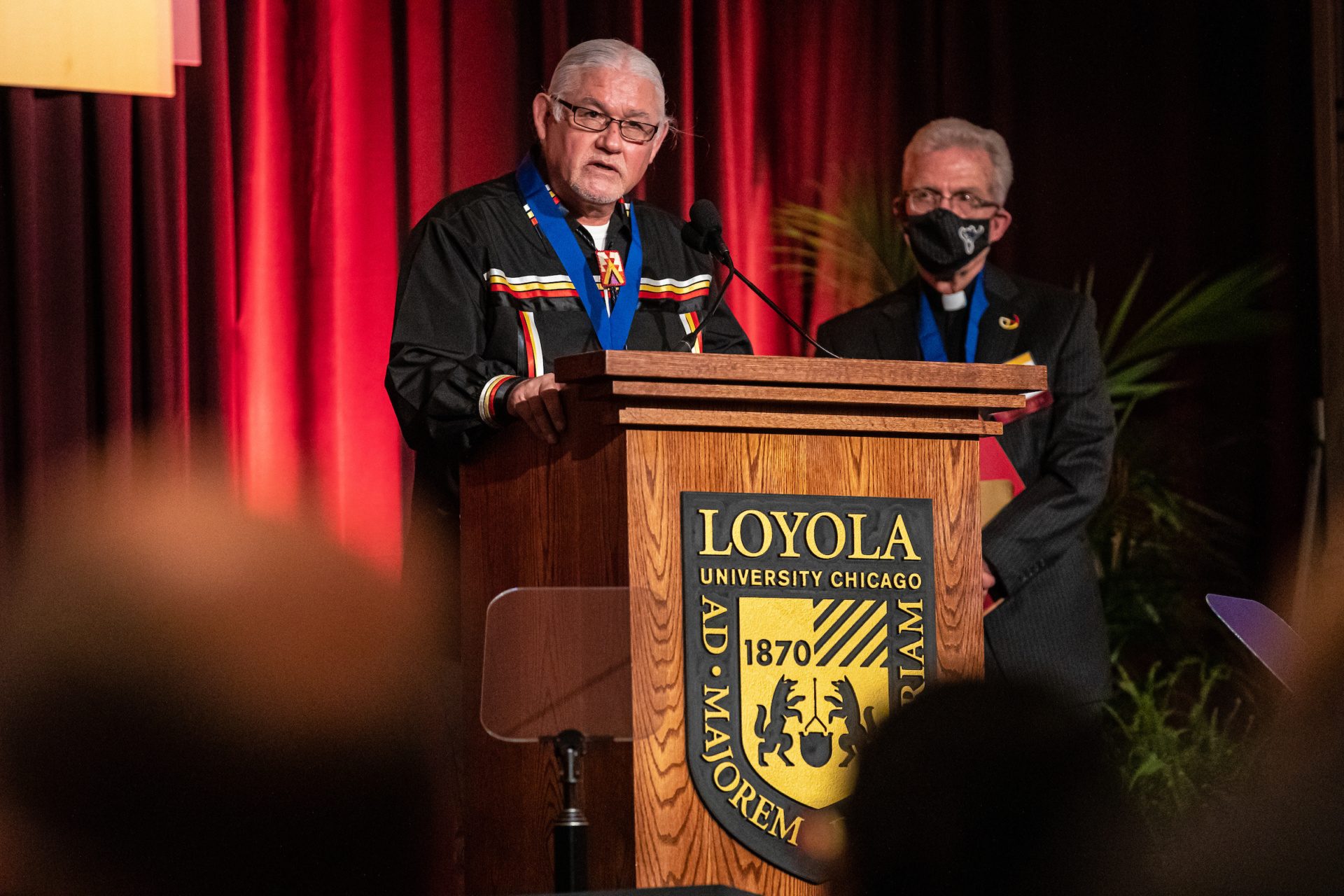
Some things in life are worth waiting for. Most would agree that a $1 million prize would definitely be among them.
Had things gone according to plan, Bob Brave Heart and Father Peter Klink, S.J., would have accepted the prestigious Opus Prize—and the $1 million award that comes with it—one year ago. The prize, given every year by a Catholic university in partnership with the Opus Prize Foundation, is normally the culmination of a months-long process. Each year, three faith-based humanitarian organizations are nominated, and representatives from Opus and the partner university visit each one, with the award being presented at a ceremony later in the year.
In 2019, Opus announced it had chosen Loyola University Chicago as its partner for the following year, with plans to give the $1 million award, along with two $100,000 runner-up prizes, in November 2020. The Red Cloud Indian School on South Dakota’s Pine Ridge Indian Reservation, where Brave Heart and Klink have spent decades educating children in the poorest county in the United States, was among the finalists. They joined the Kino Border Initiative, which provides humanitarian aid in Sonora, Mexico; and the Venezuela-based educational organization Fe y Alegria. Trips were booked and schedules made. And then came the unexpected change of plans.
When COVID-19 shut down much of the world as we knew it, only one of three planned site visits had taken place. Travel restrictions made the others impossible and would have prevented any of the finalists from coming to Loyola’s campus for the culmination of the award. And so, the process came to a halt. For the first time since its creation, the Opus Prize was not awarded in 2020. Meanwhile, the finalists continued the life-saving work they do to protect the most vulnerable members of society, made all the more urgent by a surging pandemic.
The changing nature of COVID and its variants, both in the U.S. and abroad, made it difficult to get planning back on track. Potential dates were penciled in and later pushed back as case counts and safety measures fluctuated. Loyola and the Opus Prize Foundation remained committed to seeing the process through, pivoting and shuffling plans to pull off the event in a safe manner.
One full year after the originally planned 2020 award presentation, the stars had finally aligned. In November 2021, the finalists descended upon Chicago for a week-long celebration across Loyola’s campuses.
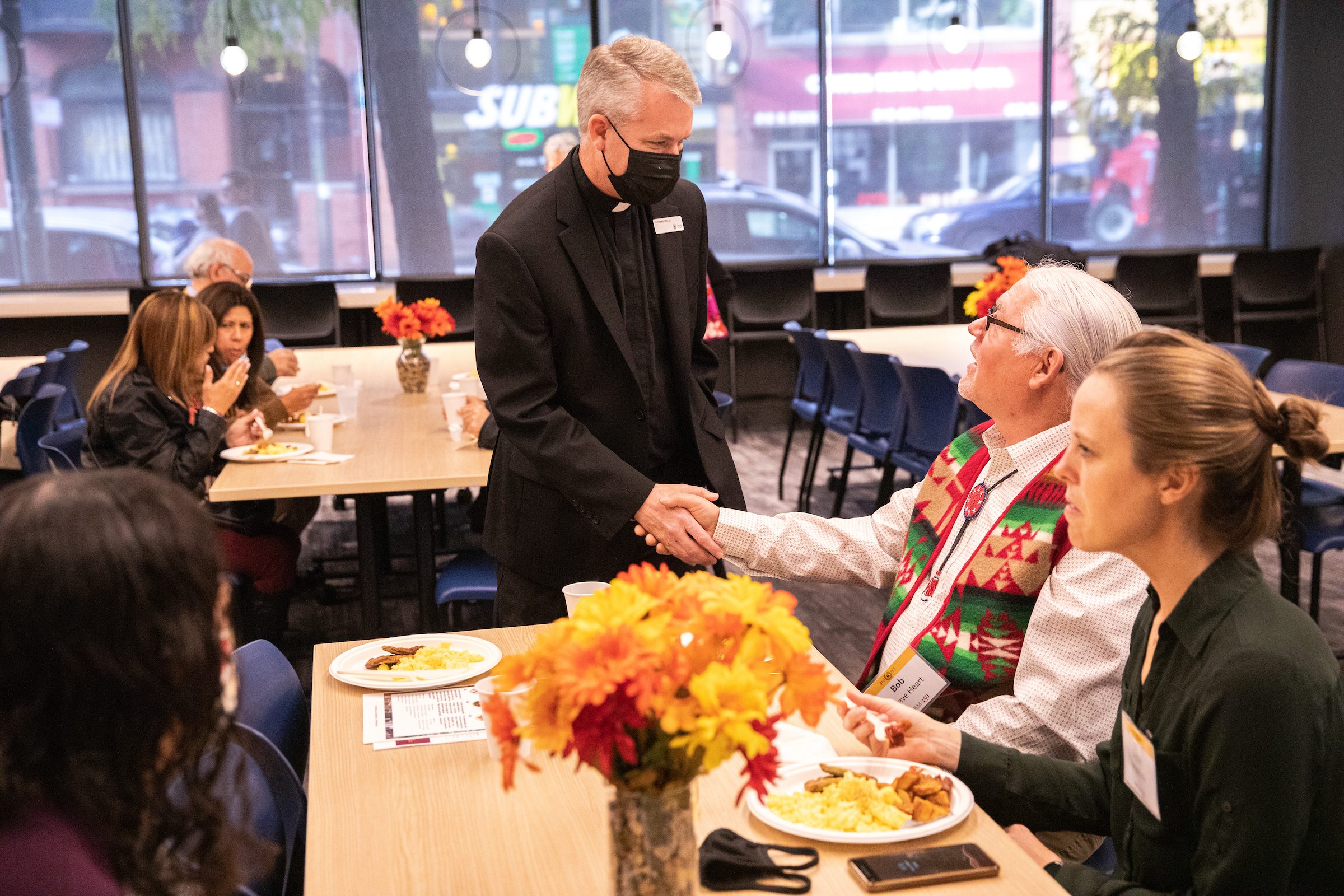
After a week of tours and meetings on all three Chicagoland campuses, the Opus Prize festivities came to a close on November 11 in the Damen Student Center. After a night of moving presentations, Loyola President Jo Ann Rooney joined Don Neureuther, CEO of the Opus Foundation, to announce the winner.
Rooney, in her remarks to the finalists, summed up the incredible contributions each one has made. “With tenacity and grace, the work you do so courageously reaches to the margins. Accompanying the suffering, you bring comfort, compassion, and solidarity in the journey to dignity and justice—all inspired by our faith.”
Each of the three finalists has a mission that is familiar to anyone in the Loyola community. But it was a fitting conclusion that Red Cloud Indian School was chosen as the 2021 Opus Prize recipient.
Like Loyola, the school was founded by the Jesuits (in 1888, less than two decades after Loyola’s own founding). Both were created in response to a recognized need for education of a vulnerable population. Through a deep partnership between the Jesuits and the Lakota people, Red Cloud has educated thousands of primary and high school students, many of whom have gone on to college, technical schools, or service in the military.
So as Brave Heart and Klink stood on the stage at a fellow Jesuit institution to receive their award, they knew it would be potentially life changing for the people they serve. And that undoubtedly, it was worth the wait.
